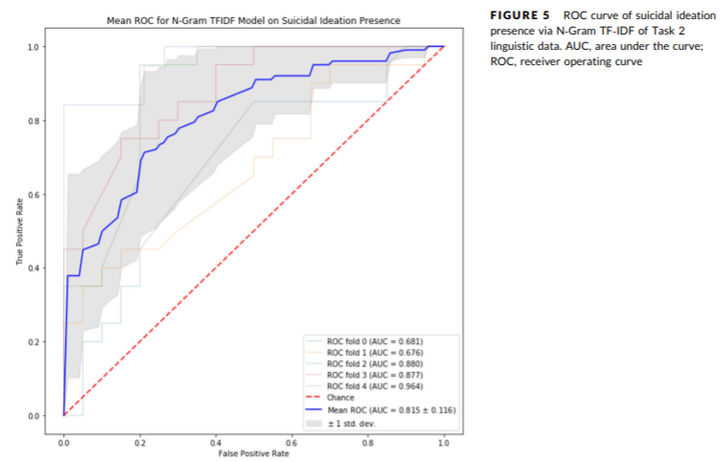Automated voice biomarkers for depression symptoms using an online cross‐sectional data collection initiative

Abstract
Importance: Depression is an illness affecting a large percentage of the world’s population throughout the lifetime. To date, there is no available biomarker for depression detection and tracking of symptoms relies on patient self-report.
Objective: To explore and validate features extracted from recorded voice samples of depressed subjects as digital biomarkers for suicidality, psychomotor disturbance, and depression severity.
Design: We conducted a cross-sectional study over the course of 12 months using a frequently visited web form version of the PHQ9 hosted by Mental Health America (MHA) to ask subjects for anonymous voice samples via a separate web form hosted by NeuroLex Laboratories. Subjects were asked to provide demographics, answers to the PHQ9, and two voice samples.
Setting: Online only.
Participants: Users of the MHA website.
Main Outcomes and Measures: Performance of statistical models using extracted voice features to predict psychomotor disturbance, suicidality, and depression severity as indicated by the PHQ9.
Results: Voice features extracted from recorded audio of depressed subjects were able to predict PHQ9 question 9 and total scores with an area under the curve of 0.821 and a mean absolute error of 4.7, respectively. Psychomotor Disturbance prediction was less powerful with an area under the curve of 0.61.
Conclusion and Relevance Automated voice analysis using short recordings of patient speech may be used to augment depression screen and symptom management.